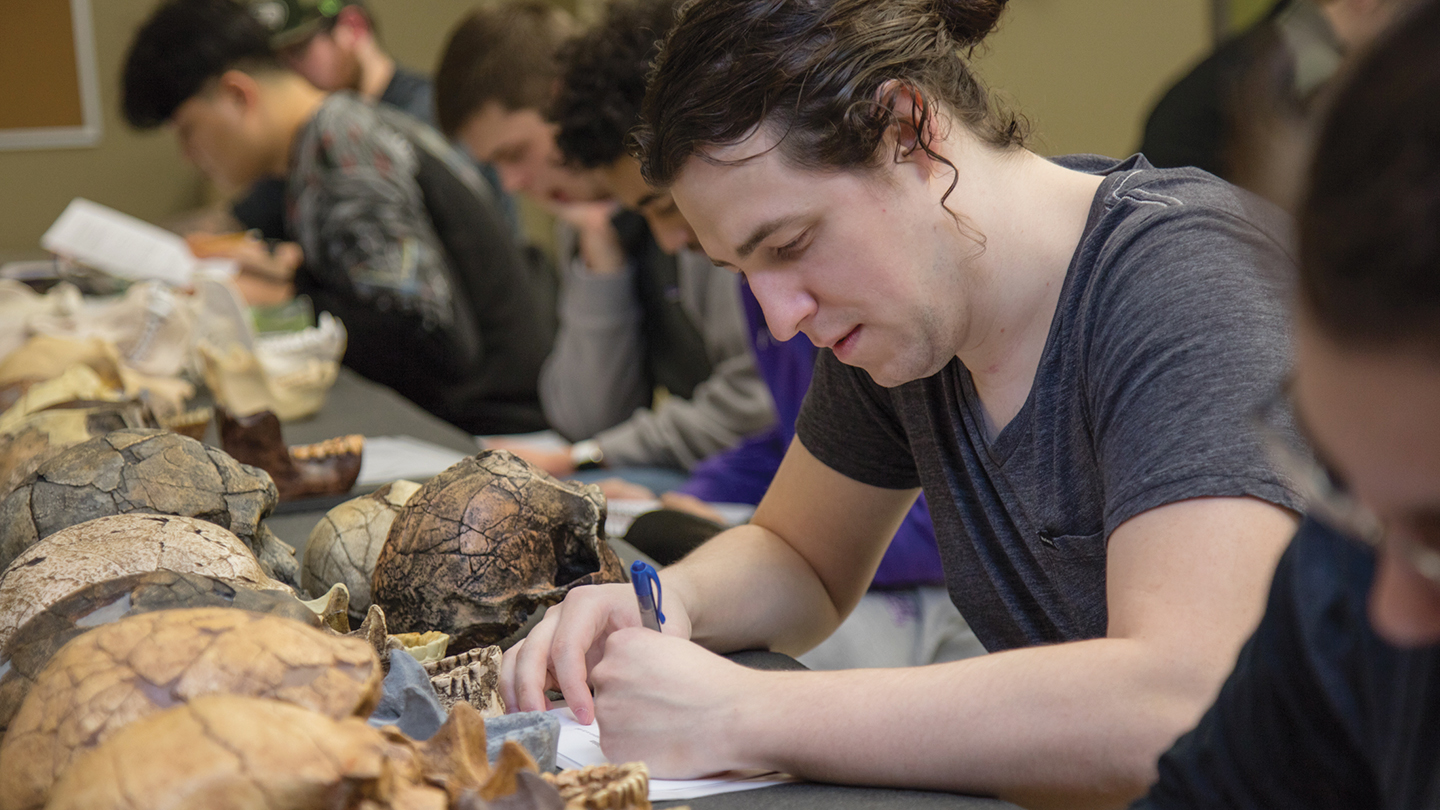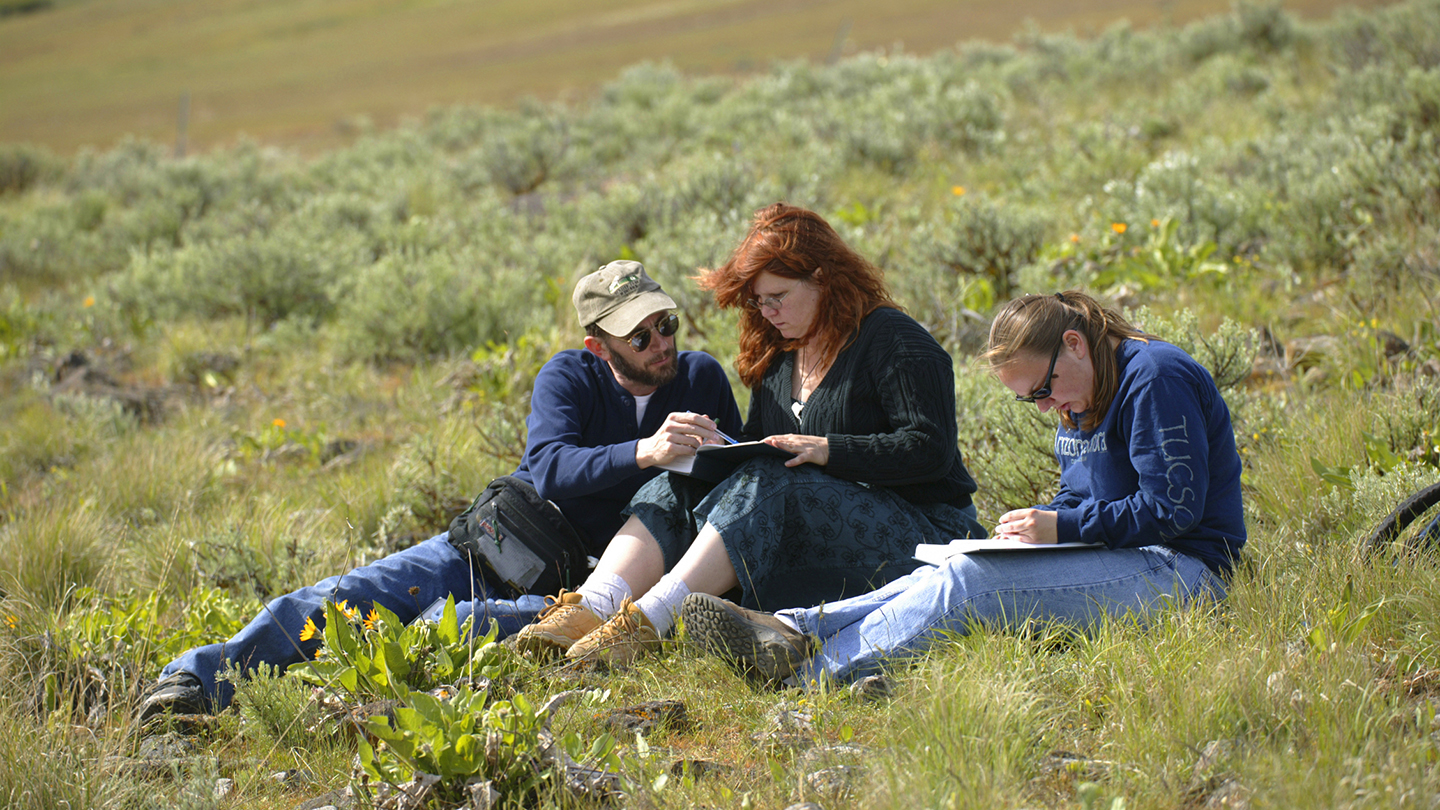
Primate Behavior and Ecology
Bachelor of Science in Primate Behavior and Ecology
About the Primate Behavior and Ecology, BS
The Primate Behavior and Ecology, BS pulls from four subjects—anthropology, biology, philosophy, and psychology—in relation to primatology. As you learn about primates, you will unravel the intricacies of their social dynamics, behavioral complexities, and ecological interactions. You will also have opportunities to conduct scientific research as undergraduates. Immerse yourself in a world teeming with insights on primate behavior and conservation initiatives.
Visit Department WebsiteWhy Study Primate Behavior and Ecology at CWU?
At CWU, we guide you to make a positive impact both within and beyond our campus community, from local conservation efforts to global initiatives.
Through our unique resources, Primate Behavior and Ecology students have several opportunities to complete internships and research with non-human primates in both captive and free-living settings.
Where is this program offered?
How much does this program cost?
Explore information on Cost, Aid, and Value to make an informed decision about investing in your education at CWU.
Where can I find more information?
Please visit the CWU Academic Catalog for current information about admission requirements, course descriptions, learner outcomes, and credit information.
Careers and Opportunities
Upon graduation, you will have the skills to contribute to wildlife conservation, habitat management, and environmental education and research, playing a critical role in protecting biodiversity and ensuring the sustainable coexistence of wildlife and ecosystems.
- Wildlife Biologists and Zoologists: Wildlife biologists and zoologists study wildlife, including their behavior, habitats, and populations. They may conduct field research, collect, and analyze data, and develop strategies for wildlife conservation and management.
- Environmental Scientists: Consider working as an Environmental Scientist, studying the environment, and addressing environmental issues. You could work on wildlife conservation, assessing the impact of human activities on ecosystems, and developing plans for habitat management and restoration.
- Conservation Scientists: As a Conservation Scientist, you would work on the preservation and management of natural resources and ecosystems.
- Education and Research: Washington State is home to renowned universities, research institutions, and nonprofit organizations that focus on wildlife research and conservation efforts. Consider continuing your education in Primate Studies with a master’s or doctorate program.
Highlights
Prepared for Your Field of Interest
CWU’s Primate Behavior and Ecology program is unique in the United States by preparing students for conservation careers in governmental and non-governmental organizations, as well as in primate laboratories, zoos, and other captive facilities. The program uses an interdisciplinary approach to exploring the relationships between non-human primates and the environment in both captive and free-range settings.
Become an Intern at the Portland Zoo
Students in CWU’s Primate Behavior and Ecology program can intern at the Portland Zoo, a nonprofit zoo emphasizing sustainable conservation and naturalistic environments while promoting animal welfare science and research.
Related Programs

Majors
Actuarial Science, BS
Get ready for high-demand actuary careers with CWU's Actuarial Science, BS. Prep for professional exams today.

Majors
Anthropology, BA
Learn about the benefits of an Anthropology Major from Central Washington University.
Questions? Contact Us.
Dr. April Binder, Primate Behavior and Ecology Director
(509)-963-3201
Penelope.Anderson@cwu.edu